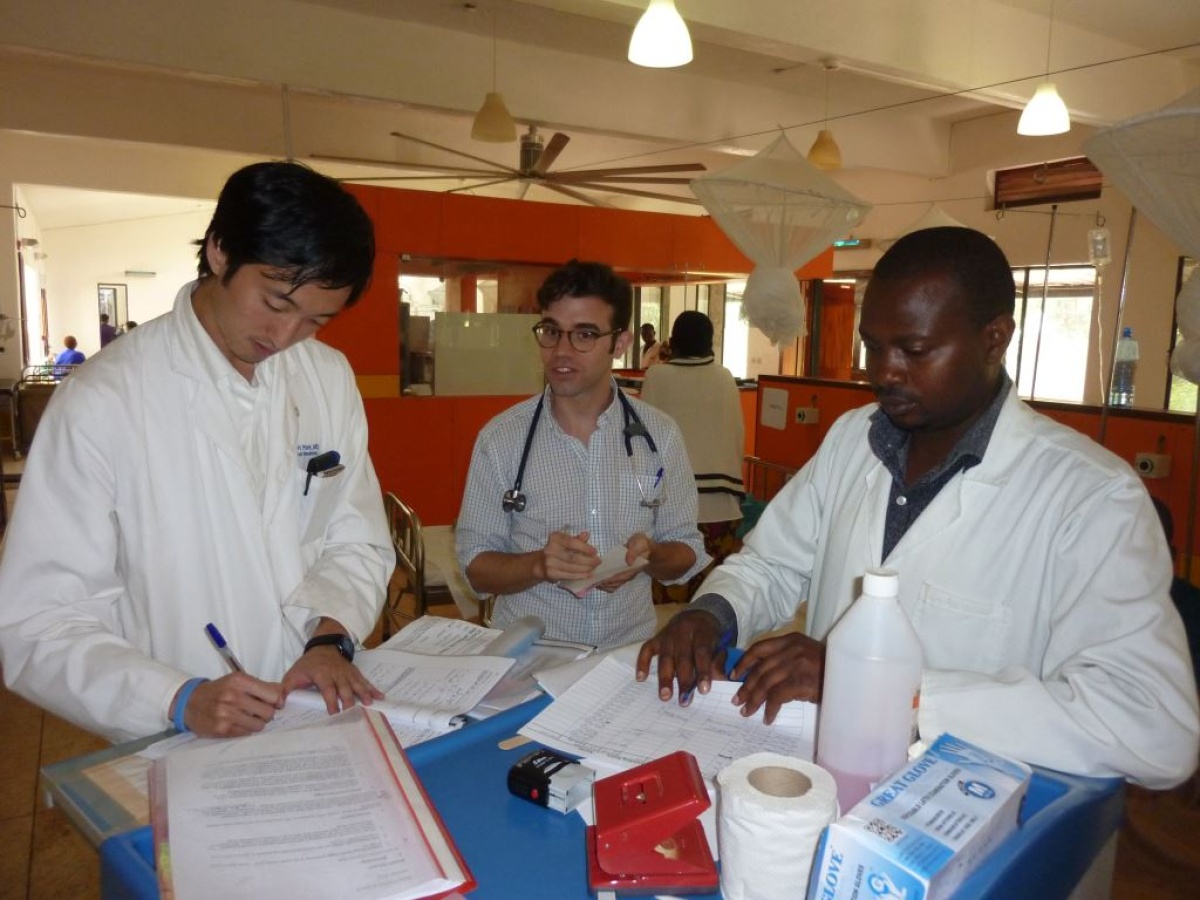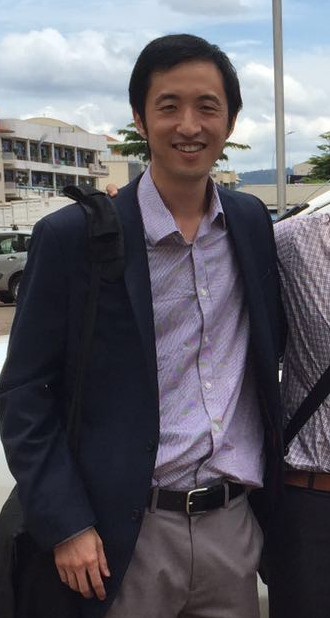‘You Have to Say Something:’ Paul Park Discusses Generational Shift in Struggle Against Racism, Violence
PIH's director of implementation for NCDs reflects on Asian American history, identity
Posted on May 14, 2021

Photos courtesy of Paul Park
As we reflect on the violence against Asian Americans that has come to light in recent weeks, it’s crucial to understand historical context—including how that context affects the present, and how bold new action is required to change the future.
“There’s a lot of reasons why that [violence] is happening. I think one of them is a misunderstanding of who we are, and our important role in the history of this country as fellow Americans,” said Dr. Paul Park, a director at PIH and the son of Korean immigrants.
“We continue to be seen as the perpetual foreigners,” Park said of Asian American communities. “People don’t understand U.S. history, and our very deep role in the fabric of that history—instead, we’re just seen as these foreigners who are not American.”

Park, 39, is Partners In Health’s director of implementation for NCD Synergies, overseeing programs that care for people with non-communicable diseases such as insulin-dependent diabetes, sickle cell disease, cardiovascular disease, and more. He’s been with PIH for eight years, is an instructor at Harvard Medical School, and a faculty member in the division of global health equity at Brigham & Women’s Hospital in Boston. He also is a physician with the Mashpee Wampanoag Health Service Unit, where since 2017 he has practiced one or two days a week with the Indian Health Service in Mashpee, Mass. A Korean American, he was born and raised in Indiana after his parents emigrated to the U.S. in the 70’s from Taegu, South Korea.
As the U.S. celebrates Asian American and Pacific Islander Heritage Month, amid repeated hate-driven attacks against Asian Americans across the country and devastating COVID-19 surges in Asian countries such as India, Park noted that all of his work, whether in global or community health, is rooted in fighting inequity and intolerance.
“It’s not a coincidence that most of our patient populations are communities of color,” Park said. “To me, our work against health care disparities is a fight against racism.”
Asian Americans are the fastest-growing racial group in the U.S., numbering more than 23 million and tracing their roots to more than 20 countries, from East and Southeast Asia, to South and Central Asia, and West Asia. While some Asian Americans are economically well off, many live in poverty. Income inequality is growing faster among Asian Americans than any other racial group—reflective of a community that includes refugees from U.S. wars across Asia, as well as an influx of new immigrants who work low-wage jobs, often in dangerous conditions.
“When we talk about the idea of decolonizing global health, I do think that decolonizing the U.S. is part of that process,” he added. “Decolonizing the work we do abroad is not enough. I think there are elements of the colonization mindset everywhere.”
That mindset supports systemic policies and structures that pit communities of color against each other, Park said, relating racist public policies to divide-and-conquer tactics.
“By throwing scraps to different minority groups, we end up essentially fighting for those scraps, instead of all having an equal opportunity for forward progress, where the system is not set up to be primarily advantageous for white Americans,” he said.
Changing centuries of violence and structural racism requires conversations that not only unify communities of color, Park said, but also overturn cultural contexts—or myths—such as the “model minority myth,” which perpetuates the false narrative that AAPIs are universally successful due to, in part, their quiet, reserved nature.
“Understanding that concept of ‘the first and second generation’ is very important,” Park said, describing his parents as part of a “first generation” who came to the U.S. with a cultural belief in working hard, keeping your head down, and providing for your family.
In other words, not “causing trouble,” so to speak, by opposing oppressive, racist policies and systems.
Park said those beliefs debilitated political and social progress for “second generation” Asian Americans such as himself, contributing to the stereotype that Asian Americans won’t create conflict and leading to the institutional abandonment of Asian American communities, including those that suffer from poverty, over-policing, and structural violence.
For example, less than 0.5% of charitable giving from foundations goes to Asian American organizations, despite the fact that some Asian American communities live in deep poverty, such as the Mongolian and Burmese communities, whose poverty rate of 25% is more than twice the national average.
“It’s up to our generation to course correct, and make noise, and show passion and fight against social injustices against us and other communities of color,” Park said.
That means stepping outside of comfort zones and engaging with people of diverse backgrounds and communities different from your own.
Park has been leading such conversations since he attended Indiana University, where he became the first chair of political advocacy for the university’s Asian American Association. Park attended IU from 2000-04, and now serves as president of its Asian Alumni Association.
He said conversations about racism and inequity must happen internally, within communities, as well.
“Like all communities, we are not perfect—we also have faced challenges around our relationships with other communities of color,” Park said. “I think that’s also something that we as the AAPI community need to discuss among ourselves.”
While his mother always told him to ignore racism, Park, who got married in October, said he plans to take a different approach, should his own family grow.
“You have to say something—otherwise my future kids are going to face the same problem,” he said. “You have to say something, be loud, be vocal. You have to push back."

